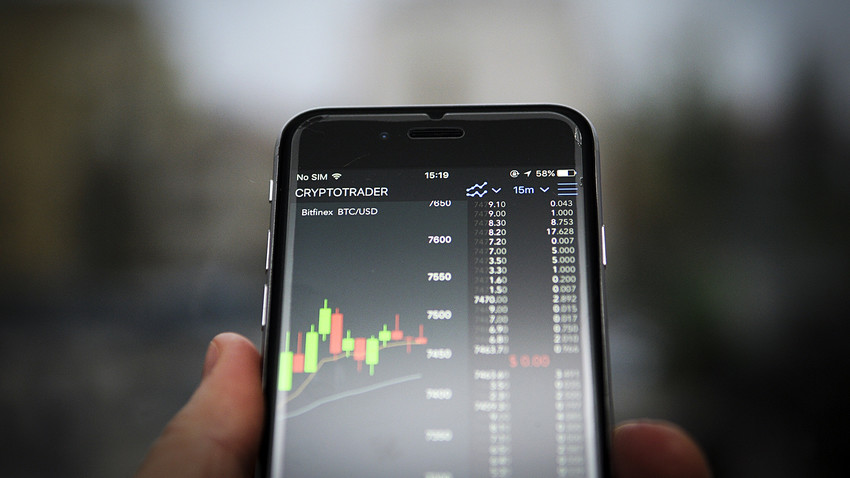6 tips from Russia’s tech entrepreneurs: How to avoid getting stung by counterfeit bitcoins

Today’s cryptocurrency market is like the Wild West, where there’s no sheriff
ZUMA Press/Global Look PressIn 2017 a small, ten-member Russian IT company called Genesis Vision put its GVT cryptocurrency on the market. However, the virtual currency did not cost anything - the company had yet to reinforce its value with anything.
But at the beginning of January 2018, a tweet allegedly coming from John McAfee (founder of the eponymous antivirus) mentioned GVT and called it the “coin of the day.” His post was retweeted thousands of times and GVT’s capitalization reached $30 million – crypto investors, interpreting the tweet as a signal, rushed to buy the cryptocurrency that only days before had been worth next to nothing. Unfortunately, this was not the real McAfee Twitter account: It had an extra “l” in the word “Official.” In just 20 minutes GVT’s rate rocketed before plummeting, while the swindlers who published the fake tweet cashed in. Genesis Vision had nothing to do with it.
There have been about 70 to 80 cases in which cryptocurrency wallet owners were tricked and left with nothing. So if you have a couple of bitcoins, other cryptocurrency or you are thinking of getting them, read the following countermeasures.
1. Don’t tell anyone you have cryptocurrency
You shouldn’t write on your Facebook page that you own some cryptocurrency. There are people roaming the net collecting lists of potential victims: People who might have cryptocurrency wallets.
“Then these people receive harmful programs in all kinds of disguises (usually Trojan horses) that steal the keys to the wallets,” says Ruslan Yusufov, director of private clients at Group IB, a
“A person wants to transfer money somewhere but a different wallet number appears on the screen. Because hackers can manage your computer remotely,” adds Yusufov.
2. Install a security system
Wallet holders must turn on a two-factor authentication system (when an SMS is sent to your phone to confirm the operation; it’s turned on in the settings in the wallet’s personal cabinet) or better, a special application where a unique one time code is displayed. Also, don’t forget to renew your antivirus.
3. Check EVERYTHING. And make bookmarks
“After registering on the market, add the site to your bookmarks and from then on enter the market only through the bookmarks,” explains Oleg Fakeev, a cryptocurrency investor.
Every popular market has a replica site (it’s absolutely identical to the original) where cryptocurrency thieves lurk. The awful thing is that these phishing sites always place their ads on Google AdWords or Yandex.Direct and appear first
Before registering, check the market’s domain name (there shouldn’t be extra or missed letters), the SSL certificate, look at the resource’s age (if it’s a month old or less, it might be fake), and the history of hacks (it says how vulnerable the market is).
4. Analyze the team behind the cryptocurrency
Investors suggest paying attention not only to the capitalization and rate of the
“Today many people make cryptocurrency. But 70 percent of it is done to increase capitalization on the hype and make a nice profit by selling the tokens on the market. This is where the story of the cryptocurrency ends,” says
5. Ask investment funds for statistics
Pyramids often disguise themselves as investment funds.
6. Don’t invest more than you are willing to lose
The cryptocurrency market offers lots of
In general, investing in cryptocurrency is similar to investing in a startup, with the same principles, remarks Yusufov. “When unknown people come to us and ask us for money, do we not first check what kind of people they are?”
But there is another, more original way: cryptocurrency for a stroll. Want to know how, click here.
If using any of Russia Beyond's content, partly or in full, always provide an active hyperlink to the original material.
Subscribe
to our newsletter!
Get the week's best stories straight to your inbox